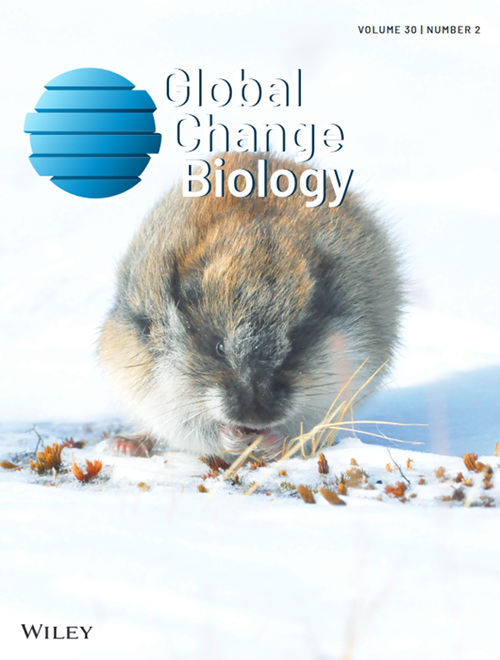Does the C:N:P 1:1:1 Ratio Hold? Examining Log-Transformation Bias in Enzyme Stoichiometry
IF 12
1区 环境科学与生态学
Q1 BIODIVERSITY CONSERVATION
引用次数: 0
Abstract
Microbial enzymes play a key role in recycling nutrients in soil, but common methods for analyzing enzyme ratios can introduce bias and reinforce misleading patterns. This article challenges the widely accepted global 1:1:1 C:N:P enzyme investment ratio, arguing it may be a methodological artefact, and recommends established, unit-independent approaches as more reliable alternatives for assessing microbial nutrient use.

C:N:P 1:1:1的比例是否成立?酶化学计量学中对数转化偏差的检验
微生物酶在土壤养分循环中发挥着关键作用,但分析酶比的常用方法可能会引入偏差并强化误导性模式。这篇文章挑战了被广泛接受的全球1:1:1 C:N:P酶投资比例,认为它可能是方法学上的人工产物,并建议建立独立于单位的方法作为评估微生物养分使用的更可靠的替代方法。
本文章由计算机程序翻译,如有差异,请以英文原文为准。
求助全文
约1分钟内获得全文
求助全文
来源期刊

Global Change Biology
环境科学-环境科学
CiteScore
21.50
自引率
5.20%
发文量
497
审稿时长
3.3 months
期刊介绍:
Global Change Biology is an environmental change journal committed to shaping the future and addressing the world's most pressing challenges, including sustainability, climate change, environmental protection, food and water safety, and global health.
Dedicated to fostering a profound understanding of the impacts of global change on biological systems and offering innovative solutions, the journal publishes a diverse range of content, including primary research articles, technical advances, research reviews, reports, opinions, perspectives, commentaries, and letters. Starting with the 2024 volume, Global Change Biology will transition to an online-only format, enhancing accessibility and contributing to the evolution of scholarly communication.
 求助内容:
求助内容: 应助结果提醒方式:
应助结果提醒方式:


